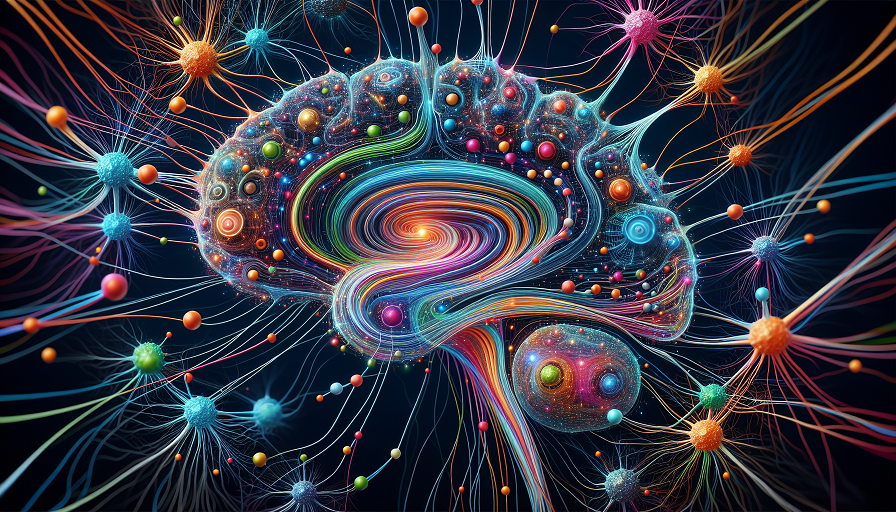
Clutter isn’t just an organizational issue — it’s a mental one. Whether it’s an overflowing closet or a chaotic to-do list, clutter has a profound impact on how your brain processes information, adapts to challenges, and maintains focus. Decluttering, both physically and mentally, can help improve mental clarity, reduce stress, and even enhance neuroplasticity — the brain’s ability to rewire and adapt.
Contents
The Science Behind Clutter and Mental Overload
Clutter, whether physical or mental, creates unnecessary stimuli that compete for your brain’s attention. Research shows that disorganized environments can lead to increased cortisol levels, impair focus, and reduce cognitive performance. Here’s why clutter can be so mentally taxing:
Cognitive Overload
The brain has a limited capacity for processing information. When surrounded by clutter, your brain struggles to filter out irrelevant stimuli, leading to cognitive overload. This reduces mental clarity and hampers your ability to concentrate on important tasks.
Increased Stress
Cluttered spaces have been shown to elevate cortisol, the stress hormone. Prolonged exposure to high stress levels can disrupt neural pathways, impairing neuroplasticity and reducing your brain’s ability to adapt.
Decision Fatigue
Every piece of clutter represents an unmade decision, whether it’s what to do with an item or when to tackle a pending task. This constant decision-making drains mental energy, leaving less capacity for creative thinking and problem-solving.
Impaired Emotional Regulation
Clutter doesn’t just affect focus — it can also impact your mood. A cluttered environment often creates feelings of guilt, frustration, or anxiety, further distracting your brain and undermining emotional resilience.
How Decluttering Improves Mental Clarity
Decluttering isn’t just about organizing your space; it’s about creating an environment that supports mental clarity and productivity. Here’s how tidying up can benefit your brain:
Reduces Cognitive Load
A clean, organized space allows your brain to focus on what truly matters, freeing up mental energy for creativity and problem-solving. By minimizing distractions, you create a mental environment that fosters clarity and focus.
Lowers Stress Levels
Decluttering helps reduce the chaos in your environment, which in turn lowers cortisol levels. A tidy space promotes a sense of control and calm, creating an emotional state that supports better decision-making and adaptability.
Improves Focus and Productivity
When your environment is organized, your brain has fewer distractions to process. This enhances your ability to concentrate on tasks and boosts productivity by removing unnecessary mental clutter.
Enhances Emotional Well-Being
Decluttering can be a cathartic process, allowing you to let go of items or thoughts that no longer serve you. This emotional release can improve your mood, build resilience, and foster a sense of accomplishment.
Decluttering and Neuroplasticity
Neuroplasticity, the brain’s ability to reorganize itself, is heavily influenced by your environment and habits. Decluttering can play a crucial role in supporting brain adaptability in the following ways:
Encourages New Neural Pathways
Decluttering requires decision-making, categorization, and problem-solving, all of which stimulate the brain. These activities create and strengthen neural pathways, enhancing cognitive flexibility and adaptability.
Promotes Habit Formation
Developing a habit of tidying up and maintaining an organized space reinforces positive neural patterns. Over time, these habits become ingrained, making it easier to sustain a clutter-free lifestyle.
Supports Stress Resilience
By reducing environmental chaos, decluttering helps lower stress levels, protecting the brain’s ability to adapt and recover from challenges. This creates a foundation for long-term mental health and neuroplasticity.
Enhances Learning and Memory
An organized environment allows the brain to focus more effectively, improving information processing and memory consolidation. This is particularly important for tasks that require learning and adaptation.
Practical Steps to Declutter Your Life
Decluttering doesn’t have to be an overwhelming task. By breaking it down into manageable steps, you can create a more organized space and clear your mind. Here are some practical strategies:
Start Small
Begin with a single drawer, shelf, or corner. Completing small tasks builds momentum and prevents feelings of overwhelm.
Follow the One-Year Rule
If you haven’t used an item in the past year, consider donating, recycling, or discarding it. This rule helps you make clear decisions about what to keep and what to let go.
Categorize and Organize
Sort items into categories and designate specific spaces for each. Use storage solutions like bins, shelves, and labels to keep everything in its place.
Set Daily Tidying Goals
Spend 10-15 minutes each day tidying up your space. Consistent effort prevents clutter from building up and reinforces the habit of organization.
Declutter Your Digital Life
Don’t forget about digital clutter. Organize your email inbox, delete unused apps, and clean up your desktop to create a streamlined virtual environment.
Practice Mindful Decluttering
Approach decluttering as a mindful practice. Focus on the task at hand and reflect on how letting go of items or thoughts makes you feel. This can enhance the emotional benefits of decluttering.
A Clear Space for a Clear Mind
Decluttering isn’t just about aesthetics — it’s a powerful way to support mental clarity, reduce stress, and enhance your brain’s adaptability. By creating a clean and organized environment, you provide your brain with the space it needs to focus, learn, and grow. Whether it’s tackling a messy closet, streamlining your digital files, or letting go of mental clutter, every small step you take contributes to a healthier, more flexible mind.
Remember, the goal isn’t perfection but progress. Start small, stay consistent, and embrace the benefits of a decluttered life. With time and effort, you’ll find that a clear space truly leads to a clearer, more adaptable mind.

